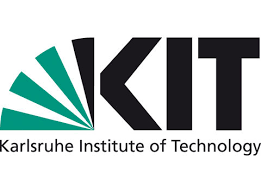Karlsruhe Institute of Technology: Two ERC Advanced Grants for KIT scientists
Double success for KIT: The European Research Council (ERC) awards computer scientist Mehdi Tahoori and physicist Alexey Ustinov each with an Advanced Grant in the 2021 award round. For their research projects in the fields of computer engineering and quantum physics, the two renowned scientists will receive funding of around 2.5 million and 2.7 million euros respectively over the next five years.
“With their interdisciplinary research projects, Mehdi Tahoori and Alexey Ustinov are breaking new ground that can lead to groundbreaking scientific discoveries. I am very pleased that the European Research Council is funding her excellent work with two of the highly renowned Advanced Grants,” says Professor Oliver Kraft, Vice President for Research at KIT. “Your projects in computer science and physics are as ambitious as they are forward-looking and offer great potential for advancing basic research for the digital transformation of our society.”
Smart computing with printed electronics
Mehdi Tahoori, professor for reliable nanocomputing at the Institute for Technical Informatics of the KIT, wants to enable the distribution of fast, inexpensive and reliable (mini) computers on the consumer market and in personalized medicine with the PRICOM (stands for: Printed Computing) project . “In this way we can not only generate economic advantages, but also improve the quality of life in a very concrete way,” emphasizes the expert for computer technology and electrical engineer. The focus of PRICOM is the development of new computer architectures that are not based on silicon chips, as was previously the case, but on the principle of additive manufacturing. Sensors that are equipped with printed electronics and are intended to be implemented directly into the respective product can integrate more components, Prepare information better and visualize it for users. Possible areas of application are, for example, fast-moving consumer goods such as food or individually manufactured medical products and medicines. “Regardless of whether it’s in the pharmacy or in the supermarket: we can all benefit from these smart products,” Tahoori is convinced. With his interdisciplinary team, he now wants to develop solutions that are suitable for transfer.
High clock quantum bits
Alexey Ustinov, Professor of Solid State Physics at the Physics Institute of KIT, has dedicated himself to the development of a new generation of superconducting quantum bits. “Qubits” form the elementary computing units for operating a quantum computer. In the Milli-Q project (stands for: Millimetre-Wave Superconducting Quantum Circuits), they are to be further developed in such a way that they will work more stably and more energy-efficiently in the future. In order to take quantum computing to a new level, the operating frequency of the qubits is to be increased from the current average of ten to one hundred gigahertz. “This is a big step from which we expect many technological advantages,” says Ustinov, who has been researching in the field of quantum circuits for more than two decades. Among other things, the new quantum processors should be able to work at significantly higher temperatures than before in order to reduce the high infrastructure and energy costs that have previously been required for cooling. The primary goal is to get an overall picture of the physical properties of quantum circuits at temperatures around one Kelvin. “If our research approach is successful, we will have reached another important milestone on the way to a superconducting quantum computer for processing exponentially growing amounts of data,” emphasizes Ustinov. get an overall picture of the physical properties of quantum circuits at temperatures around one Kelvin. “If our research approach is successful, we will have reached another important milestone on the way to a superconducting quantum computer for processing exponentially growing amounts of data,” emphasizes Ustinov. get an overall picture of the physical properties of quantum circuits at temperatures around one Kelvin. “If our research approach is successful, we will have reached another important milestone on the way to a superconducting quantum computer for processing exponentially growing amounts of data,” emphasizes Ustinov.
ERC Advanced Grants 2021
With the ERC Advanced Grants, the European Research Council (ERC) supports established top scientists with outstanding scientific achievements who want to open up new research areas. The scientific work from the last ten years before the application is submitted is decisive for the assessment. 1735 researchers took part in the 2021 call for proposals. The ERC awarded Advanced Grants for a total of 253 projects in 21 countries with a total funding volume of more than 624 million euros, 61 of them at German universities and research institutions. The approval rate is 14.6 percent.

